Not a day goes by without news about how waste reaches our beautiful oceans. However, thanks to each of these stories, more and more effort is being devoted to turning the tide on water pollution.
Today, conservationists estimate the waste count to be billions and more than 260,000 tons of plastic waste wandering the oceans. The different types of plastics and paints not only pollute the waters, they are also dangerous to the marine life that swallows them or is trapped in them.
However, this is a feel-good story that serves as an example (and a reminder!) of how we should take care of life in the ocean. A video appeared showing how divers in Lembeh, Indonesia, are convincing a baby veined octopus to change “home” from a clear plastic cup to a pair of seashells.
Pall Sigurdsson and other divers stumbled upon a baby octopus in a plastic cup
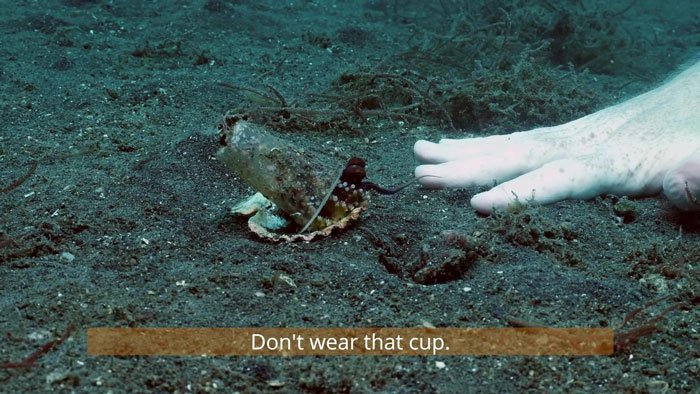
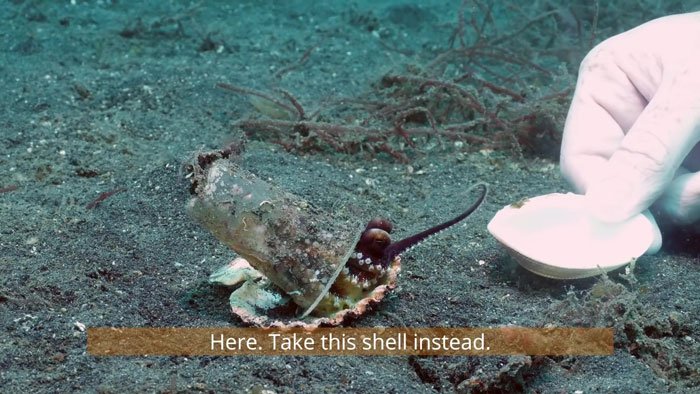
When asked about his encounter with the baby octopus, Sigurdsson explained: “This was our third dive that day and we were all starting to get a little tired. My dive buddy sent me a hand signal that he had found an octopus and asked me to go and ask for help.”
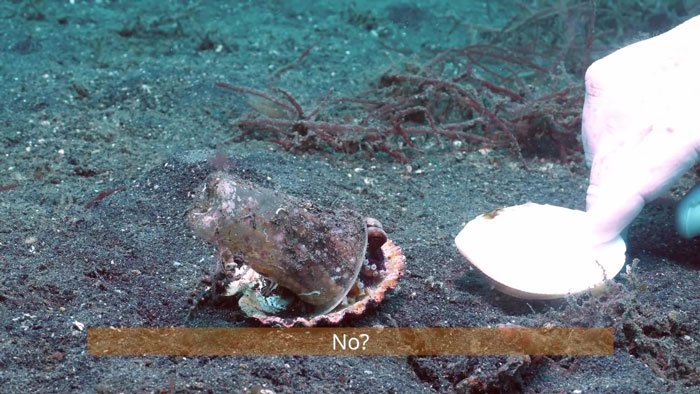
The team was so dedicated to helping the octopus that they almost ran out of air
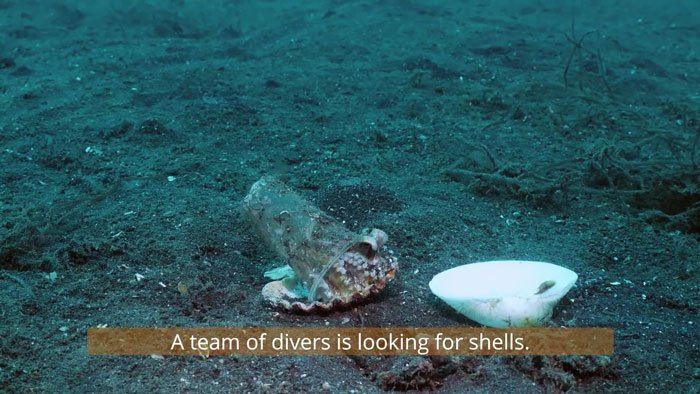
“I’m no stranger to seeing octopuses making houses out of trash. They are intelligent animals and use their environment to their advantage and trash is a permanent part of their environment now,” Sigurdsson continued. “However, the octopus with its soft tentacles did not know that this cup offers virtually no protection and in a competitive environment such as the ocean, this cup was a guaranteed death sentence”.
Sigurdsson and other divers were so dedicated to helping this small veined octopus that they devoted all their diving and much of their oxygen to the cause. In the end, they managed to convince the new friend to change “housing”.
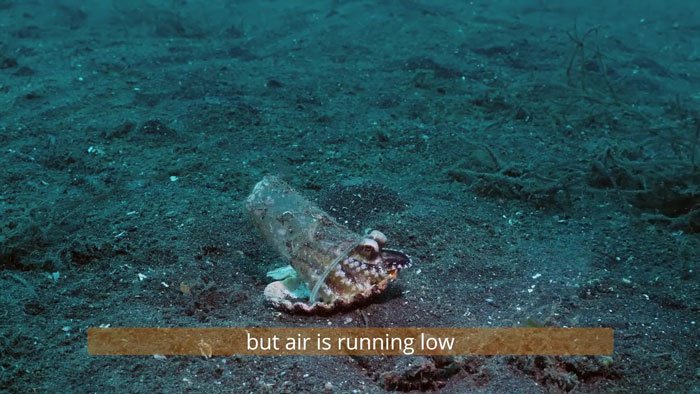
They offered a series of shells until the veined octopus finally chose one
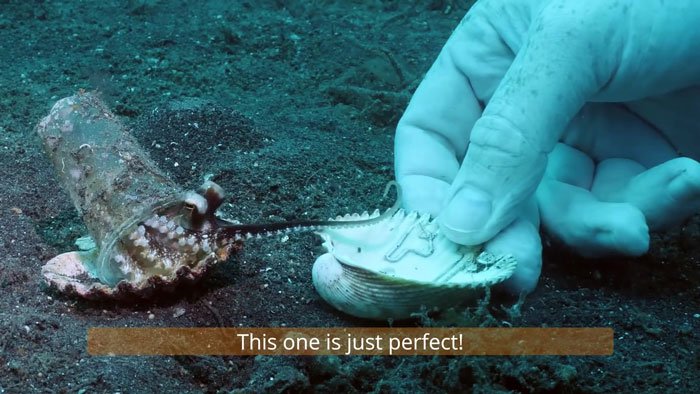
Veined octopuses are born with the instinct to protect themselves when looking for coconut or shells to make a mobile home. Therefore, they are sometimes called coconut octopus.
However, in the absence of natural materials, they also use what they find on the seabed, such as empty plastic cups or containers.
This not only means that the octopus is vulnerable to predators because of the transparent plastic, it also means that the predators would eat the octopus along with the plastic.
It is very likely that the predator will also die or weaken to a degree where a larger predator can be rushed to kill it easily, continuing the cycle of plastic contamination.
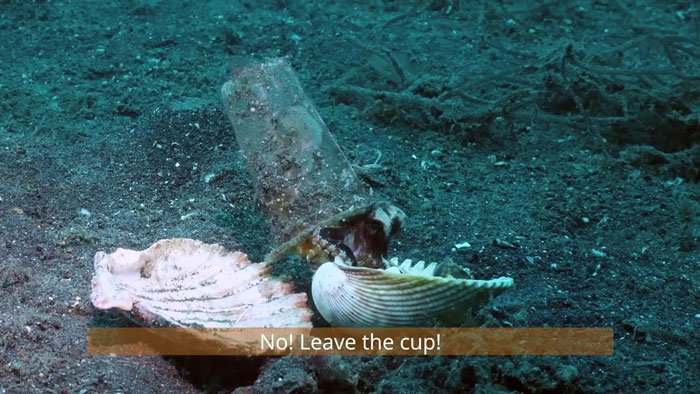
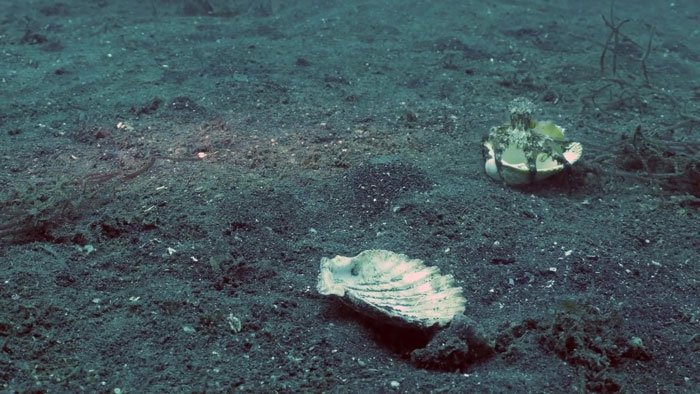
We asked Sigurdsson if garbage is a common part of his diving experience. “There are good days and bad days depending on the ocean currents. Some days, you see so much trash that it’s almost impossible to film sea creatures without also including trash”.
“I try my best to get people to see the ocean when it looks its best. I once saw a family of anemone fish living next to a corroded battery. That was heartbreaking,” Sigurdsson sighed.
The adorable octopus almost forgot the other half of the shell
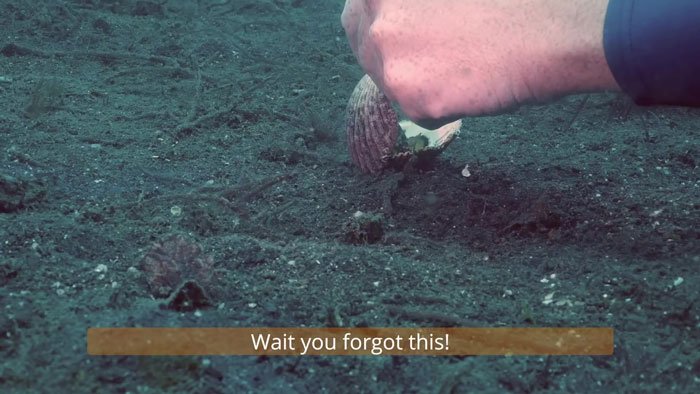
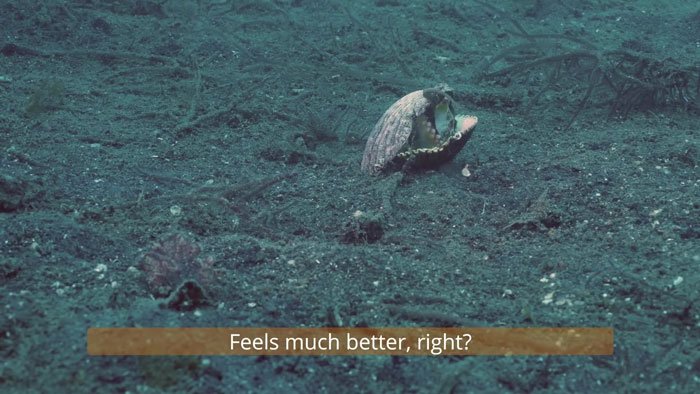
Plastic is the main pollutant in the oceans and we all have the potential to make the oceans a better place to live for everyone. Sigurdsson elaborated: “Most garbage (including plastic) sinks. Most people only talk about the parts they can see. The part that floats, but that’s just grazing the surface of the problem. Plastic straws are a tiny part of the problem”.
Here you have the complete video of Sigurdsson and his team persuading the octopus to change “housing”: